Failure or Success for David Cameron at European Council?
Adelina Marini, December 29, 2015
 It depends on who you ask – to British Prime Minister David Cameron a lot of progress was made, although the road ahead looks difficult; to the continent this is a mission of political rescue of the British PM, which is far from the member states’ agenda. The conclusion from the December EU summit is that David Cameron will receive nothing of what he most cared about – changes in relations with the EU, advertised by the resounding if wrong headline “EU reform”. If Cameron had made the effort to research beforehand what the attitudes and appetites were, and what the stakes were, he might have known that his efforts were doomed. Alas, the British PM has not learned the lessons from the series of mistakes he made. He never realised that looking for a national victory over the EU is a recipe for disaster. His first tactical mistake was at the negotiations of the fiscal compact. He never managed to read correctly the signals he received at the previous EU summit in October, when the subject was supposed to receive the attention of the 28 heads of state or government, but got postponed because of Europe’s more pressing problems, stemming from the refugee crisis.
It depends on who you ask – to British Prime Minister David Cameron a lot of progress was made, although the road ahead looks difficult; to the continent this is a mission of political rescue of the British PM, which is far from the member states’ agenda. The conclusion from the December EU summit is that David Cameron will receive nothing of what he most cared about – changes in relations with the EU, advertised by the resounding if wrong headline “EU reform”. If Cameron had made the effort to research beforehand what the attitudes and appetites were, and what the stakes were, he might have known that his efforts were doomed. Alas, the British PM has not learned the lessons from the series of mistakes he made. He never realised that looking for a national victory over the EU is a recipe for disaster. His first tactical mistake was at the negotiations of the fiscal compact. He never managed to read correctly the signals he received at the previous EU summit in October, when the subject was supposed to receive the attention of the 28 heads of state or government, but got postponed because of Europe’s more pressing problems, stemming from the refugee crisis.
To the EU the refugee crisis is a much more dangerous disintegration force than Great Britain leaving. Although no one wants the United Kingdom to leave the EU, many on the continent are aware that this would cause far less turmoil than the breaking up of Schengen. End of the day Great Britain is halfway out anyway – a multitude of exceptions, concessions, and most of all a strong resistance to the EU, which makes it not a full-fledged member. The rest’s stakes are far higher, for if to Great Britain the EU is most of all a common market, to the continent the EU is a warrant of peace. And this became painfully obvious at the December European Council meeting, when Donald Tusk admitted: “Not only because I have been advocating external border control from the very beginning of this crisis, but also because without it we will fail as a political community. And by that I mean potentially more serious consequences than dismantling Schengen”, were the first words of Mr Tusk after the end of the debates on the British question a little past midnight on Friday (18th December).
What does David Cameron want?
The British PM sent his long-expected letter with specific demands all the way in November, having been bringing up the subject of a “reform” for over a year and a half, causing a lot of irritation among European leaders, for they had no idea exactly what was expected of them. His requests are divided into four groups that quickly gained the Brussels jargon name – baskets. The first basket contains demands for settlement of relations between the euro area and states outside it. Great Britain requests guarantees on several important principles. First of all that there will be no discrimination against or unfair treatment of any business, based on the currency of the country in question. Guarantees are requested as well for common market preservation, meaning whatever is done within the euro area, it will not be mandatory. David Cameron also wants guarantees that the future of the euro area will have no negative effect on states outside it and that non-euro-states will not have to participate in the bailout of a member in trouble. It is also demanded that all issues pertaining to all member states be decided by all member states.
The second basket is dedicated to competitiveness and this is the only basket that works with the idea of an EU reform, for it urges a simplification of European legislation and lowering the number of regulations (compulsory legislation). You may say it is the easiest of the baskets, for Great Britain supports the proposals of the EC of this year for lowering bureaucracy and simplification of regulations. According to a diplomatic source whom euinside recently interviewed, London fully backs the proposals of the Commission on completing the common market, creation of a common digital market, and better regulation. In this sense it is plausible that with the initiatives already underway, although pending the approvals of the Council and the European Parliament, the requests in the second basket are practically met.
The third basket goes with the headline “Sovereignty” and in it Great Britain demands that the line „towards an ever closer union” is removed from the EU’s founding treaties. It is also requested that the role of national parliaments is increased, so that the ever growing role of the EP is counterbalanced. David Cameron actually wants something more than a balance, for in his letter he writes that he wants national parliaments to be able to stop unwanted legislation. There is no concrete proposal yet on what the minimum of member state parliaments that would be able to reject a certain piece of legislation, but there is room for negotiations on this subject left. Before Cameron mailed his letter British diplomatic circles talked about 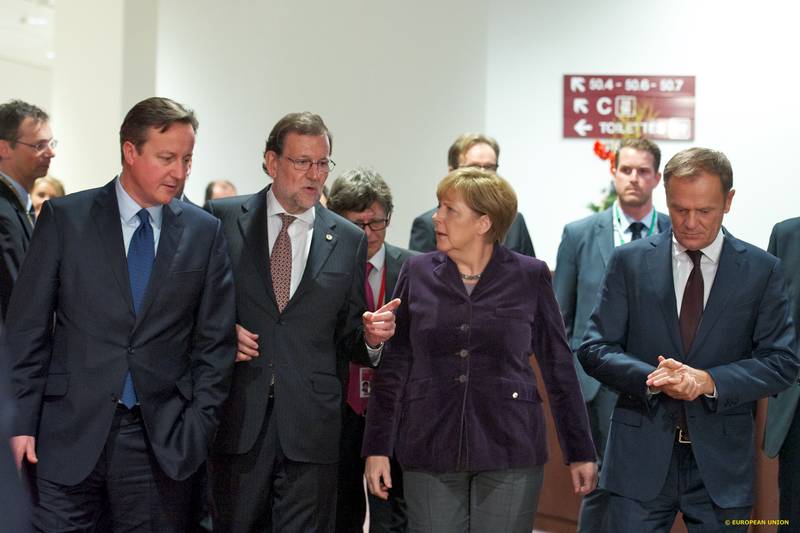 increasing the role of national parliaments, but not about them being able to veto European legislation.
increasing the role of national parliaments, but not about them being able to veto European legislation.
Requests in the third basket can be qualified as an attempt at a reform of the EU, but actually they would mean driving back the EU to a lower level of integration, which at the moment would be swimming against the current. Although the integration drive from the time of the crisis has weakened considerably and even reactionary forces have sprung up, nevertheless the deepening of EU integration is a process that advances in a number of spheres, mainly within the euro area. A new drive for sharing national sovereignty in the sphere of national security as well has developed over the terrorist attacks in Paris from November 13th, when dozens of citizens of European and non-European states lost their lives. The subject was raised once again at the December summit by French President François Hollande. However, in his letter David Cameron insists that national security remains fully the responsibility of member states. In this sense the British PM once again lucks out on timing.
The fourth group of demands can safely be named the “Eastern basket”, for with it the United Kingdom wants to limit the access to social welfare of EU workers within the first four years of their arrival into the country. Acknowledging the magnitude of the request, in his letter David Cameron apologises for this demand, explaining what the objective reasons for it are. The country’s population is growing. Within the next decades it is expected to reach 70 million people. By 2050, Great Britain is expected to become the most-populated member state, outnumbering Germany and France. Immigrants are the main source of growth. At the moment the net migration to the country is 300 000 per annum. “Britain has always been an open, trading nation, and we do not want to change that. But we do want to find arrangements to allow a member state like the UK to restore a sense of fairness to our immigration system and to reduce the current very high level of population flows from within the EU into the UK”, says the letter.
The last basket actually turned to first during the discussions in the European Parliament and the European Council the last working week in the EU. As early as in his reply to David Cameron European Council President Donald Tusk admitted that the fourth basket was the most delicate. He did, however, urge the leaders of member states to hold an open discussion with no taboos, for “in times when geopolitics is back in Europe, we need to be united and strong”.
Understanding, but an adamant refusal
The subject of the British requests was planned for the leaders’ dinner. Despite the calls for honest and thorough discussions, the dinner actually did not last too long. It became clear from the statements of many of the leaders that Great Britain’s requests are mission impossible. Some showed understanding towards the British PM, others did not. According to Donald Tusk, the discussions were a turning point. To him the most important thing was that the atmosphere was good and there was goodwill. At the same time he stated: “Truly speaking, we are absolutely sure we have to be 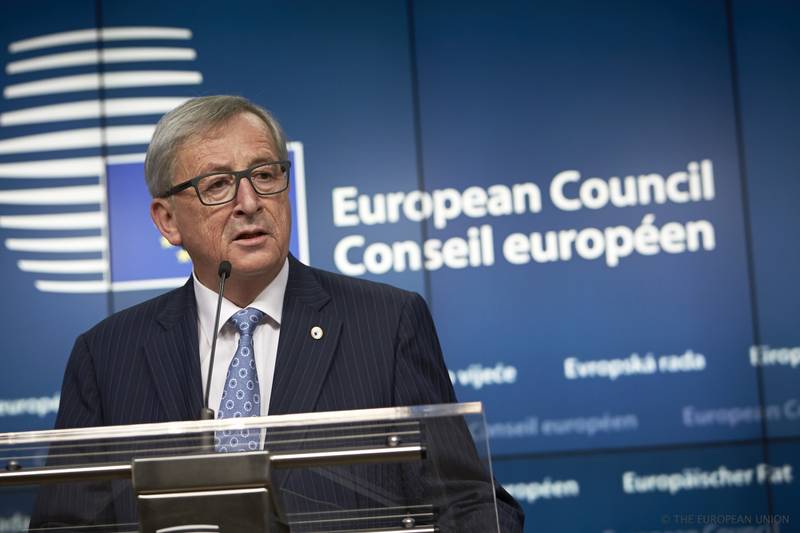 tough when it comes to some red lines and fundamental values”. And this is a definite no, for Great Britain will not back down on its requests.
tough when it comes to some red lines and fundamental values”. And this is a definite no, for Great Britain will not back down on its requests.
European Commission chief Jean-Claude Juncker demonstrated certain annoyance at the British subject. During his plenary hearing in Strasbourg on the topics on the agenda for the December EU summit he hardly mentioned the subject. And at the end of the “British” dinner he stated: “On the UK problem, I'd like to warn you of the illusory impression that there are three easy questions and one tricky one. There are four tricky questions. Each one covers further questions and we have to consider all of those up to February”.
A cold shower came from the engine of European integration – Germany and France - as well. Chancellor Angela Merkel was straightforward in stating that during the debates there was a mention of the need for changes in the foundation treaties of the EU. The way she explained why this subject could not be discussed at the moment spoke volumes about and end foretold to the British attempt for re-negotiation. In her words, the leaders were expected to make a commitment to change the treaties in the future. Although this is not implicitly written in David Cameron’s letter, the commitment to future changes in the treaties is a fundamental request, without which Great Britain will not back down. Angela Merkel explained she could make no commitments on behalf of future leaders. “We cannot say in 5 years we can shift responsibility on the shoulders of politicians who will be in charge”. She gave an example with her predecessor Gerhard Schröder, who made the decision that Turkey receives a candidate state status. This happened in 2005.
“I wouldn't have decided that at the time”, she said, “but I feel bound to build on what was decided by my predecessor”. Besides, the German chancellor explained, the request for changes in the foundation treaties demands an agreement in the governing coalition, as well as the Bundestag support. “We have to be responsible today, but the future politicians will have to live with the consequences”, she clarified. In her opinion, changes in the treaties could be considered only when the new architecture of the euro area is ready. Even then, however, there will be no agreement to limit freedom of mobility, thinks Ms Merkel. To French President François Hollande two of the baskets are red lines. Those are the basket on the euro area and the one on social welfare. On the first basket, which requires member states to guarantee to non-euro states that their decisions will not affect them, the French president stated that it is logical that consequences from changes within the Economic and Monetary Union (EMU) be discussed with all, but non-euro states should not hinder the will of the euro area to move forward.
He insisted that euro-states should be totally free to make decisions on their own future. David Cameron and his finance minister George Osborne repeatedly stated that they are not only not opposed to, but even support the deepening of integration within the euro area, provided this does not harm states outside the common currency zone. It is crucial, however, how this balance will be formulated, for there is a clear danger that the request of Great Britain actually blocks the development of the euro area. This question also calls for a thorough legal investigation for in fact the states that do not wish to be part of the euro area and have an opt-out for it are not that many. The rest of the non-euro states are contractually obliged to join, although there is no specific deadline set.
François Hollande again reiterated his idea of a separate euro area parliament, which would, however, be part of the European Parliament, as well as the issue of a common euro area budget. He stressed that the ones that continue forward with their integration will not be picking Europe out of a menu. “This would be a fragmented Europe, which at the end of the day would fall apart”, said François Hollande. Right before the summit Jean-Claude Juncker assured MEPs that he does not support the idea of a separate euro area parliament. This happened during the first debate in plenary on the future of the euro area, as plotted in the five presidents’ report.
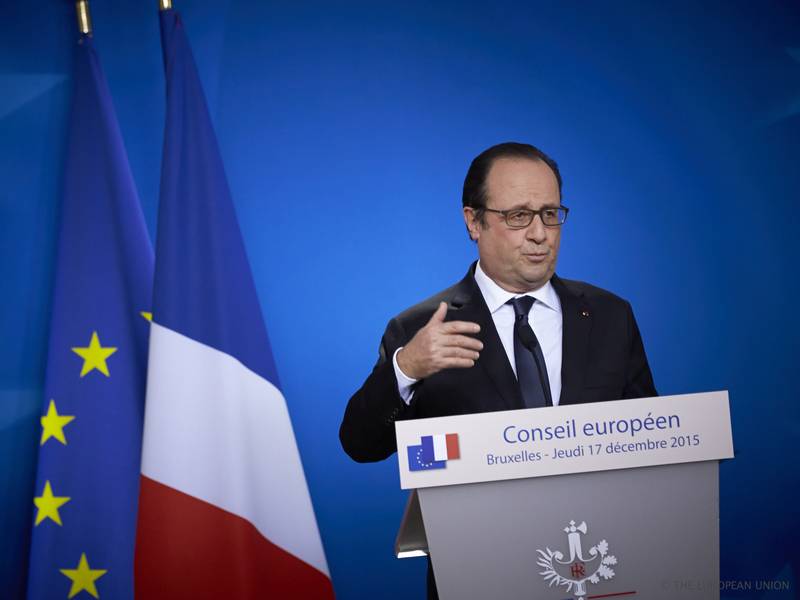 Hollande also spoke on the procedure of enhanced cooperation, which is a higher gear of EU integration, in which there is already talk, free of prejudice, of a Europe of several speeds. Hollande gave as an example the procedure of introduction of a tax on financial transactions. “I certainly hope that the UK remains in Europe with some adjustments, but this should not stop others from moving forward. At the same time, we will not stop others from moving at the correct velocity, So, this is a true discussion on Europe, and we can use the British issue to establish some rules, which would be extremely beneficial over the following years”, added the French head of state. He adamantly denied any possibility for a change in the EU Treaty in saying that this would lead to a multitude of negative consequences, like having other states wanting changes in their favour.
Hollande also spoke on the procedure of enhanced cooperation, which is a higher gear of EU integration, in which there is already talk, free of prejudice, of a Europe of several speeds. Hollande gave as an example the procedure of introduction of a tax on financial transactions. “I certainly hope that the UK remains in Europe with some adjustments, but this should not stop others from moving forward. At the same time, we will not stop others from moving at the correct velocity, So, this is a true discussion on Europe, and we can use the British issue to establish some rules, which would be extremely beneficial over the following years”, added the French head of state. He adamantly denied any possibility for a change in the EU Treaty in saying that this would lead to a multitude of negative consequences, like having other states wanting changes in their favour.
According to Hollande, whatever is negotiated for Great Britain should be available to use by other states, who wish to pull the handbrake on integration. The French president fully supported the new EU member states regarding social welfare, included in the fourth negotiation basket. In his words there are not many French citizens that would be affected by Great Britain’s limit on new immigrants’ access to the social system for four years after their arrival in the country, but Europe is built on the principle of freedom of movement and it is important that these limits are consistent with the EU Treaty, continued the French president and threatened that if Great Britain kept those restrictions, there would need to be reciprocity installed on the continent.
Eastern EU member states as a whole showed a large bit of understanding towards the requests of the first three baskets of David Cameron, but stood decisively against the fourth one. The four states of the Visegrád group – Hungary, Slovakia, Czech Republic, and Poland – have already made it into a tradition to negotiate a common position before EU summits. The December one being no exception. In a joint declaration the prime ministers of the four countries fully support the debate on competitiveness and several elements of all four baskets, which they feel could lead to the modernisation of the European Union, including the role of national parliaments. “However, as the Visegrád Group countries consider the freedom of movement one of the fundamental values of the European Union, proposals regarding this area remain the most sensitive issue for us. In this respect, we will not support any solutions which would be discriminatory or limit free movement”.
Bulgarian Prime Minister Boyko Borissov had a mixed position. He showed deep understanding to the reasons Great Britain has for wanting to limit its social welfare system for newcomers, but at the same time stated that he was explicitly against the 4-year limit. Bulgaria is one of the states with net export of immigrants towards the UK, although on a far smaller scale than Poland and Hungary. Croatian Prime Minister Zoran Milanović, who at the moment is fully booked with the attempts of forming a new government after the difficult 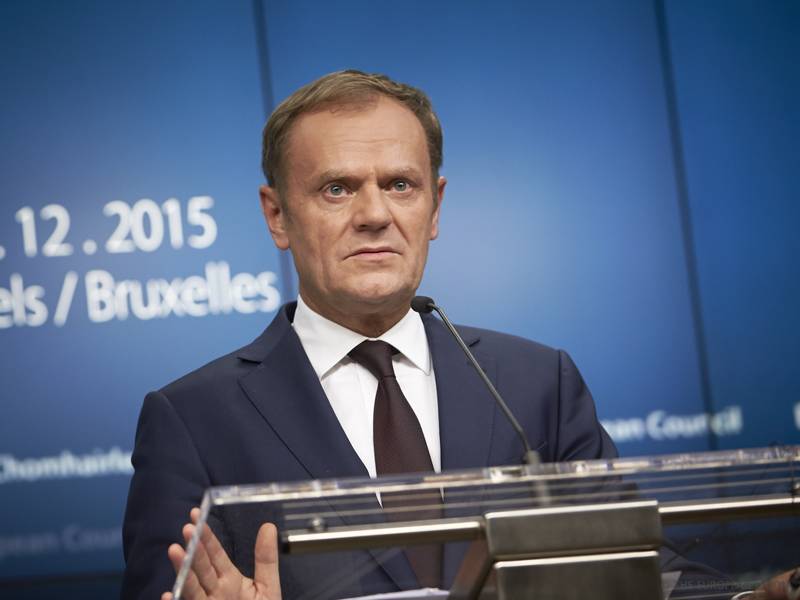 election results in the country, is also ready to support many of David Cameron’s demands, except the ones in the fourth basket.
election results in the country, is also ready to support many of David Cameron’s demands, except the ones in the fourth basket.
Right on the day of the debate in the European Council, the draft legislation on holding a referendum on the membership of the United Kingdom in the EU received a final royal approval. The vote must be held by the end of 2017. The date depends on when a deal with the EU will be struck. It was agreed on December 17th that everything will be done to reach an agreement by February, when there is going to be a special summit on the British issue. Only then will a date be set, being quite possible that the vote is organised as soon as next year. At it British citizens will be asked to give a yes or no answer to the question “Should the United Kingdom remain a member of the European Union or leave the European Union?”. The campaign has already started, with the nay-campaign dominating so far. David Cameron promised in his letter that if he received approval for all his requests he would work for remaining in the EU.
Translated by Stanimir Stoev
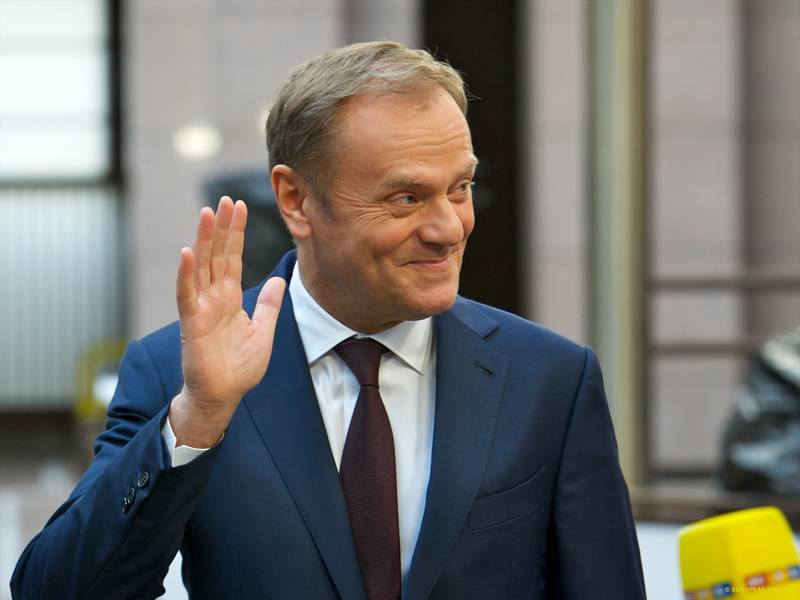 Donald Tusk | © Council of the EU
Donald Tusk | © Council of the EU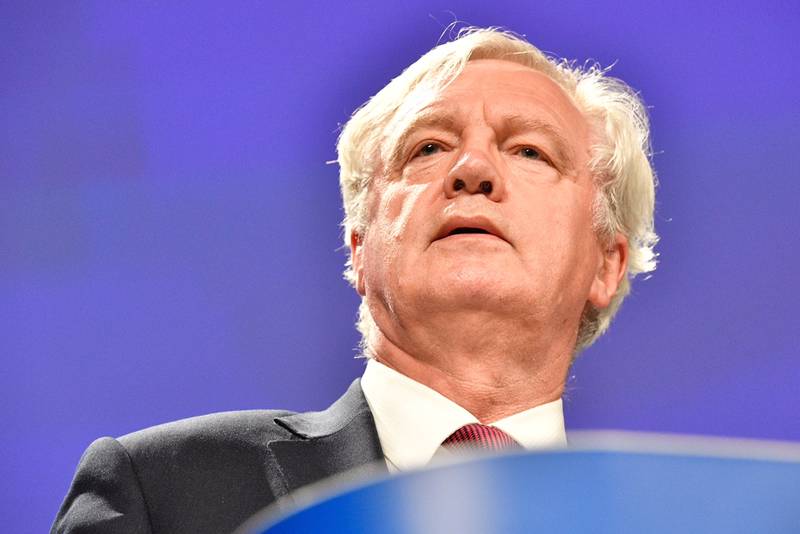 David Davis | © European Commission
David Davis | © European Commission Angela Merkel | © Council of the EU
Angela Merkel | © Council of the EU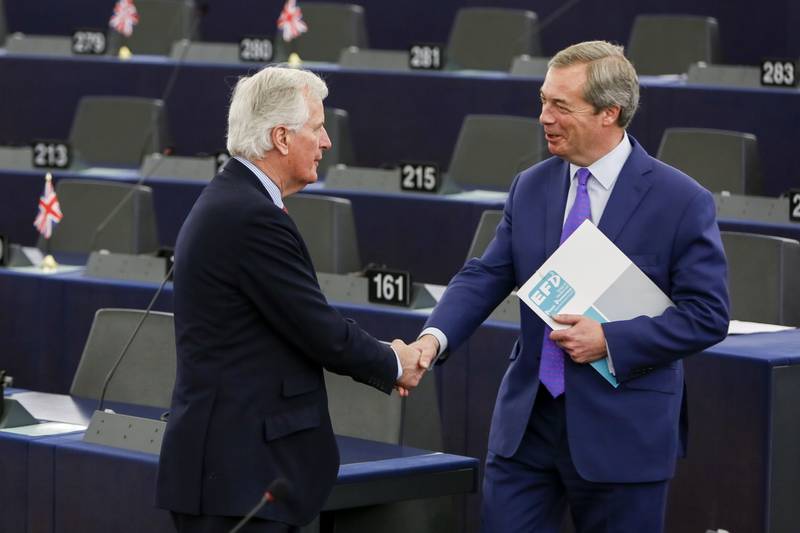 Michel Barnier, Nigel Farage | © European Parliament
Michel Barnier, Nigel Farage | © European Parliament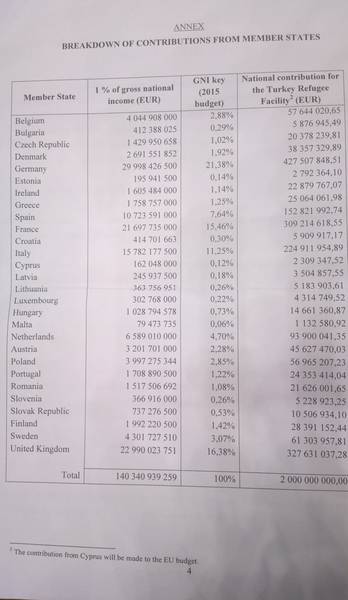 | © euinside
| © euinside | © euinside
| © euinside